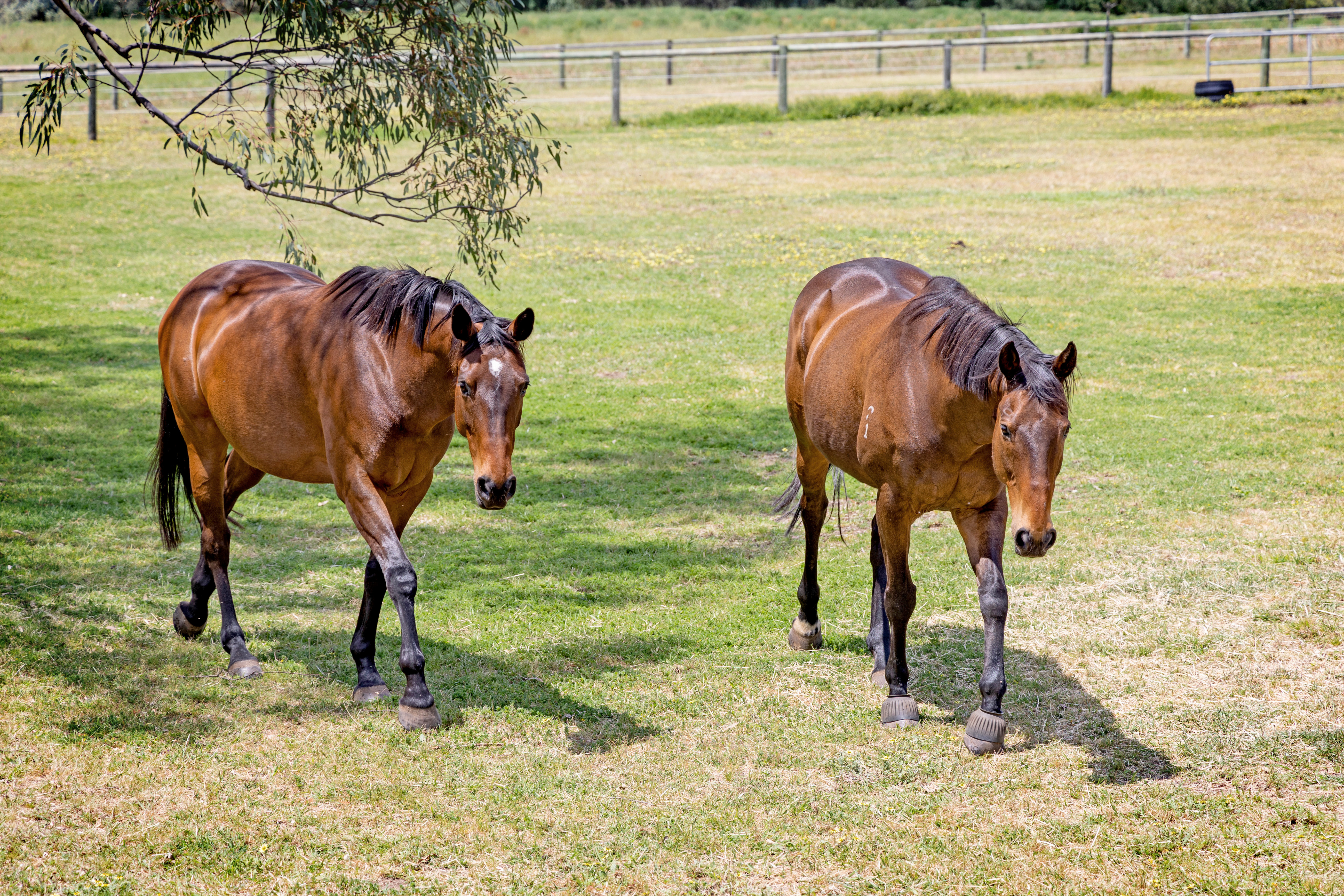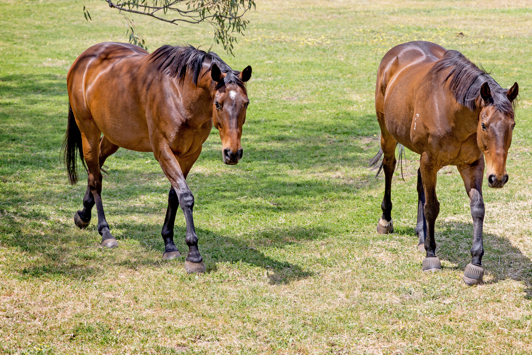
African horse sickness is a reportable disease in Western Australia.
Australia is free from African horse sickness. Early detection increases our chances of containing and eradicating the disease if it does occur here. The presence or suspicion of African horse sickness must be reported in Western Australia (see here how to report).
What is African horse sickness?
African horse sickness is an arbovirus that affects all members of the horse family (horses, mules, donkeys and zebras). Dogs are also susceptible to the disease. Arboviruses are a group of viruses that are transmitted by infected insects. Biting midges from the genus Culicoides are the most important vectors. The competence of Australian species of Culicoides for African horse sickness is unknown.
African horse sickness is not transmitted directly between animals. African horse sickness does not affect people.
There are nine known serotypes of African horse sickness (AHSV-1 - AHSV-9). African horse sickness is endemic in all parts of sub-Saharan African with all serotypes occurring in eastern and southern Africa. There has been periodic spread to the north of Africa into countries surrounding the Mediterranean with only serotypes 9, 4 and 2 occurring in north and west Africa. An outbreak of AHSV-1 was reported in Thailand in March 2020. The outbreak was managed by protecting horses from vectors and through the use of an attenuated live vaccine. Thailand reclaimed freedom from African horse sickness in March 2023. African horse sickness was also reported in five horses in the Malaysian province of Terengganu in 2020. All five horses were destroyed. The recent incursions of African horse sickness in Thailand and Malaysia are the first reports that African horse sickness has spread into the Asia-Pacific region.
There is no effective treatment for African horse sickness, although supportive care may help in the recovery of some horses. Live attenuated vaccines exist overseas but are not approved for use in Australia.
The National Arbovirus Monitoring Program (NAMP) monitors incursions of exotic Culicoides sp. that can potentially transmit animal diseases such as African horse sickness.
What are the signs of African horse sickness?
Horses generally experience more severe disease and high fatality rates than other equids. Zebras are considered to be the natural hosts and act as a reservoir by having an extended period of viraemia while exhibiting few or no clinical signs.
There are several forms of African horse sickness. The specific signs of African horse sickess reflect the effects of the virus on the lungs, or on the heart and circulatory system, or a combination of both.
Pulmonary form (peracute) signs include:
- fever (40- 41°C)
- progressive severe respiratory disease, coughing, dilated nostrils with copious amounts of frothy nasal discharge coming out
- high case fatality with death occurring 4-5 days after the onset of fever.
Cardiac form (subacute oedematous) signs include:
- fever (39–41°C)
- swelling above and behind the eyes, eyelids, facial tissues, neck, thorax, brisket and shoulders
- pinpoint haemorrhages over the white of the eye, the inside of the eyelid (conjunctiva) and on the underside of the tongue.
- colic may occur
- death 4-8 days after the onset of fever.
Mixed form (acute) signs include:
- a combination of the pulmonary and cardiac forms of the disease
- case fatality rate may exceed 70% with death occurring in 3-6 days after the onset of fever
- most common form in endemic areas.
Horse sickness fever (subclinical form):
- A mild form also known as horse sickness fever can occur and is most common in zebras, African donkeys and partially immune equids. Signs can include transient fever and swelling above or behind the eyes.
- Infected dogs develop anorexia, lethargy, respiratory distress and excess salivation; death may occur within a day to a week following development of clinical signs.
- The incubation period from an equid being infected with African horse sickness to signs of illness is 2 days to 2 weeks. The pulmonary form has a shorter incubation period than the cardiac form.
- African horse sickness must be differentiated from other diseases that cause sudden death, respiratory distress or swelling. These diseases include exotic diseases such as equine viral arteritis, equine piroplasmosis and equine encepahlomyelitis. Reportable animal diseases such as anthrax, Hendra virus and equine infectious anaemia can also present similarly to African horse sickness. Purpura haemorrhagic (a rare complication of strangles) is also clinically similar.
How to report African horse sickness
Early detection enables rapid investigation, control, and eradication. Reporting helps protect against potential economic damage and safeguards the future of our equine industry. If you suspect African horse sickness, see signs of disease or death consistent with African horse sickness in your horses or other equids, you must report it. See below for the three ways to do this.
How does African horse sickness spread?
African horse sickness is transmitted in the saliva of the infected Culicoides sp. biting midge. Equids are the primary and amplifying hosts. It is not known if dogs play a role in onward transmission of the virus. Horses can remain infective (viraemic) for up 21 days (although usually 4 to 8 days) with donkeys and zebras reported as being infective for much longer, 28 days and 40 days respectively.
African horse sickness only occurs where there is a suitable environment for the vector. Heavy rains preceded by drought favour expansion of Culicoides sp. populations.
The virus that causes African horse sickness does not survive outside the vector species or susceptible vertebrate hosts. Dogs may contract the virus after eating infected horsemeat with the virus surviving in frozen, but not salted meat.
The importation of zebras has been implicated in some outbreaks outside of Africa.
How can I help prevent African horse sickness?
There are several measures that will help reduce the risk of an outbreak:
- If importing horses from overseas, ensure all import conditions are met.
- Implement a best practice biosecurity plan for your property and horses (and other equids).
- Consider implementing measures to reduce horse contact with potential vectors.
- Know the signs of African horse sickness.
- Immediately report any signs of African horse sickness to a veterinarian.

